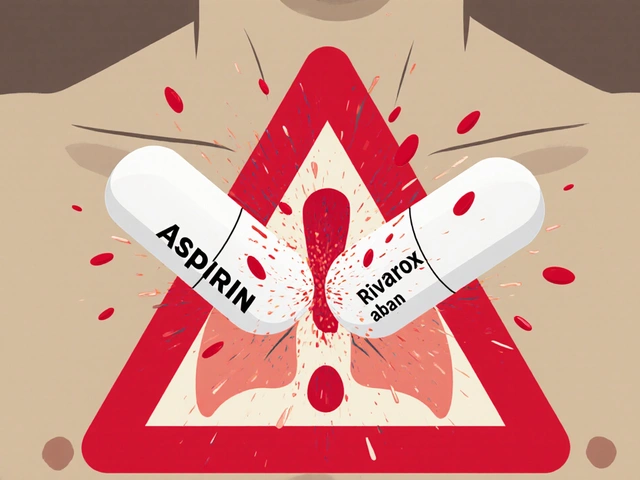April 2025 Archive — Practical medication guides & clear next steps
This month we focused on real questions people ask about common medicines and heart or metabolic risks. If you want short, usable advice—not dense medical text—you’re in the right place. Below I summarize each piece and give quick actions you can take or ask your provider about.
What we published this month
Nitrate Medications Explained: Nitrates (like isosorbide) relieve chest pain by widening blood vessels. Long-term use can cause tolerance—meaning the drug works less well over time—and side effects like headaches, lightheadedness, and low blood pressure. Important tips: avoid taking nitrates with ED drugs (they can dangerously drop blood pressure), keep regular follow-ups so doses can be adjusted, and report persistent dizziness or fainting. If you notice less benefit, ask about dosing schedules or nitrate-free intervals your clinician can recommend.
Thyroid Disorders and Arrhythmias: Too much thyroid hormone can speed your heart and cause atrial fibrillation or palpitations; too little can slow things down or make some rhythm drugs act differently. Watch for sudden racing heart, shortness of breath, or unexplained fatigue. Simple blood tests (TSH and free T4) usually show the problem. Practical move: if you have heart rhythm changes, ask your doctor for thyroid testing before jumping to long-term antiarrhythmic therapy.
9 Alternatives in 2025 to Doxycycline: Doxycycline still works for many infections, but allergies, side effects, or resistance mean you sometimes need other options. Alternatives covered include macrolides, amoxicillin-type drugs, cephalosporins, TMP-SMX, and fluoroquinolones—each works for certain infections and has trade-offs (allergy risk, GI effects, tendon or cardiac risks). Tip: match the antibiotic to the infection and your health history; don’t swap drugs without talking to a clinician.
Top 7 Alternatives to Glipizide: If glipizide (a sulfonylurea) causes low blood sugar or isn’t a good fit, other classes can help. Metformin remains first-line for many people; SGLT2 inhibitors (like empagliflozin) help with weight and heart benefits for some; DPP‑4 inhibitors and GLP‑1 agonists offer other pros. Each option has pros and cons—discuss kidney function, heart disease, and hypoglycemia risk with your provider when switching.
Quick actions you can take
1) If you’re on nitrates and ever take ED meds, stop and talk to your clinician right away. 2) If you have new palpitations, ask for TSH/free T4. 3) Allergic or intolerant to doxycycline? Get an infection-specific alternative recommendation—don’t guess. 4) Thinking of switching from glipizide? Check recent A1C, kidney function, and your risk of low blood sugar before changing meds.
Want one clear next step? Print the short note you want to discuss and bring it to your next appointment: it makes conversations faster and safer. For anything urgent—fainting, chest pain, severe shortness of breath—seek emergency care.

Clomid Not Working? Second-Line Fertility Treatments & Alternatives Explained
When Clomid fails to trigger ovulation, what are your real-world options? This detailed guide breaks down medical second-line therapies, lifestyle tweaks, and complementary choices that can boost your chances to conceive. Specific advice, real stats, and tips make the next steps much clearer for couples trying to grow their family. If you want to widen your fertility toolkit, this article lays out exactly what you need to know. Practical, honest, and absolutely packed with important insights.
View More
Thyroid Disorders and Arrhythmias: What You Need to Know
Thyroid problems can mess with your heartbeat in ways most people don't realize. This article breaks down why your thyroid matters for your heart's rhythm, what signs to watch for, and what you can do about it. You'll get practical tips, real-life examples, and some surprising facts. If you're dealing with heart palpitations or know someone with a thyroid issue, this is stuff you need to understand. No jargon, just clear info you can actually use.
View More
Nitrate Medications Explained: What to Know About Long-Term Use and Heart Health
Nitrate medications are vital for many people dealing with heart problems, but long-term use comes with its own set of complications. This article goes in-depth about how these drugs work, what patients experience with continued use, and why staying monitored is key to safety. You'll learn about side effects, the science behind nitrate action, and expert tips for managing treatment. Whether you're a patient or a caregiver, there are practical insights and evidence-based advice throughout. The article also covers the need for regular doctor visits for anyone on nitrates long-term.
View More
9 Alternatives in 2025 to Doxycycline: Your Complete Guide
Doxycycline isn't your only option if you need an antibiotic in 2025. This guide digs into nine real alternatives, exploring how each stacks up if you’re dealing with bacterial infections, skin problems, or travel bugs. Every alternative comes with its perks—and its problems. Whether you’re allergic to doxycycline, dealing with side effects, or your doctor says it just isn’t right for you, you’ve got options. Compare them all simply so you can talk smart with your healthcare provider.
View More




